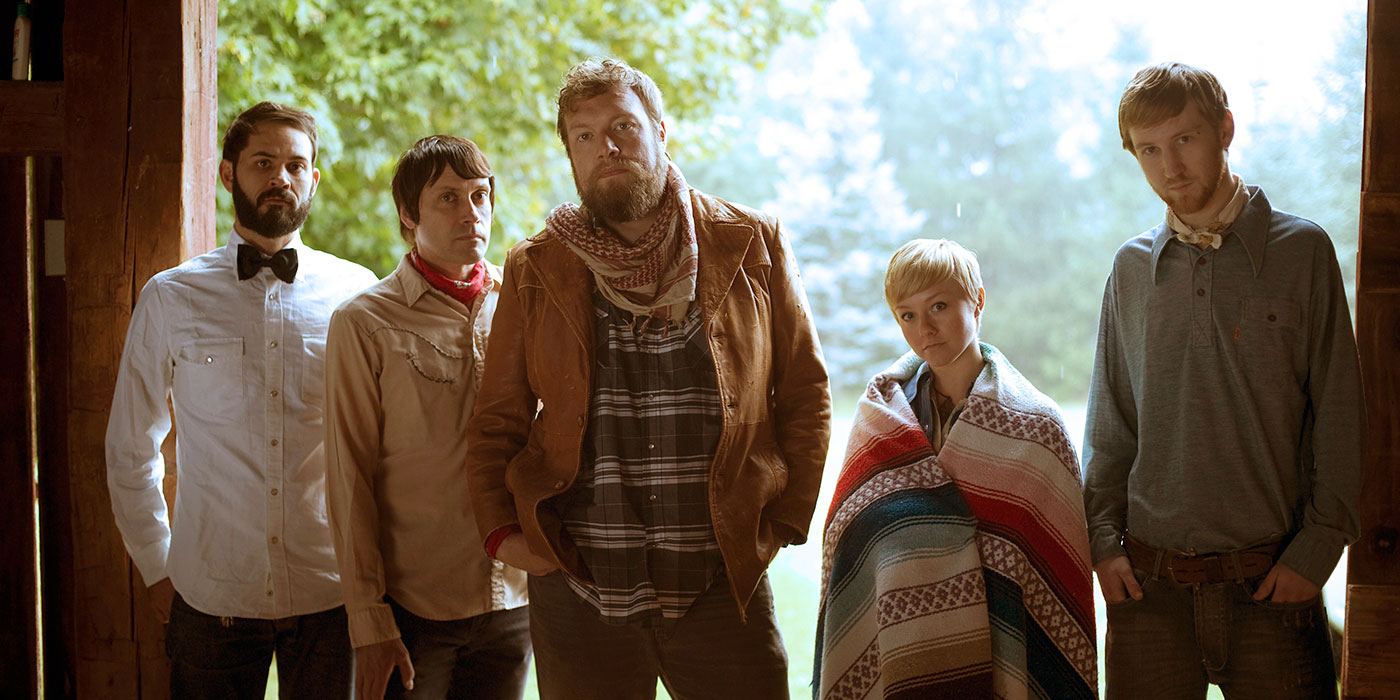The seemingly effortless way that Communist Daughter’s latest EP, Lions & Lambs, builds off the success of their debut belies a tumultuous journey that first threatened and then saved both the band and its frontman.
The Prescott, WI-originated band’s 2010 debut, Soundtrack to the End, made them local favorites on the Twin Cities scene, garnered widespread critical praise, and landed both “Speed of Sound” and the title track on TV’s Grey’s Anatomy. But a stint in rehab for frontman and songwriter Johnny Solomon led some to question the group’s future.
Fortunately, the now-sober Solomon appears to be winning the battle against his personal demons, and the musical results of his comeback are impressive. Lions & Lambs opens with “Ghosts,” which introduces a heavier rock edge while keeping Solomon’s wistful lead vocals and Molly Moore’s gorgeous harmonies at the forefront. The EP also contains a reworked version of “Speed of Sound” and four other new tracks that should leave listeners eagerly anticipating the group’s next full-length album. [spacer height=”5px”]
Communist Daughter will be at the High Noon Saloon on Wednesday, November 7. In advance of that visit, Jonk Music asked frontman Johnny Solomon for his thoughts on where the band has been and what is to come. [spacer height=”10px”]
Johnny, you’ve had a fairly winding road to get to this point, both as a musician and personally. How do those experiences inform your songwriting?
“My songwriting always comes from a personal place. Even when I try to talk about something else, I find the personal in it. I’ve got a lot to draw on, but I think everyone lives with struggle somewhere in their life. In some ways, I’m a songwriter in spite of the stuff I’ve dealt with.”
How would you compare the new Lions & Lambs EP to your debut, Soundtrack to the End?
“Lions & Lambs was harder for me to put together. For one, I had to be present for it and I had to face what I was doing. And just knowing that people wanted to hear what came next, that was a struggle. The songs bridged the gap of getting clean, so the EP is just placed in a rough emotional place for me. That being said, I think it’s a good start to where things are going.”
Although you’re based in Minnesota now, much of the genesis of the band occurred in Prescott, Wisconsin. What led you to Prescott, and how did that time period impact the direction of the music?
“Prescott was a world away from the Twin Cities while still being close enough that the rest of the band could drive out. I guess it made the band an island. We weren’t reacting to anything but what we were doing in that small town. It was also just a small town in Wisconsin; I could sink as low as I wanted to go and not be around anyone that knew me, and that’s pretty much what I did. Most of that music was me saying the things I needed to, with no one there to hear it. Small towns are funny that way. Everyone knows your name, but you don’t necessarily get along with anyone.”
The chemistry between your vocals and Molly’s is a big part of your sound, but that chemistry extends beyond the music to an engagement. How important has your relationship been to the success of the band?
“I’ve struggled with a lot just to get back to living, and making music has always been hard for me. The music part is just kind of second nature to her so it comes easy for her to sing along, but she holds me up in other ways. I know that the two of us together is more than the sum of our parts, so there is something greater than I can put my finger on. It’s not just a duet; it’s not exactly that, and it’s more than it. Luckily, it’s not my job to figure out how to describe it.”
What do you hope the future holds for Communist Daughter?
“I hope that one day I can feel comfortable as a musician. I guess that’s maybe what works for me, but one day it would be nice to just know that the band and the music is a place I feel comfortable going to.”



